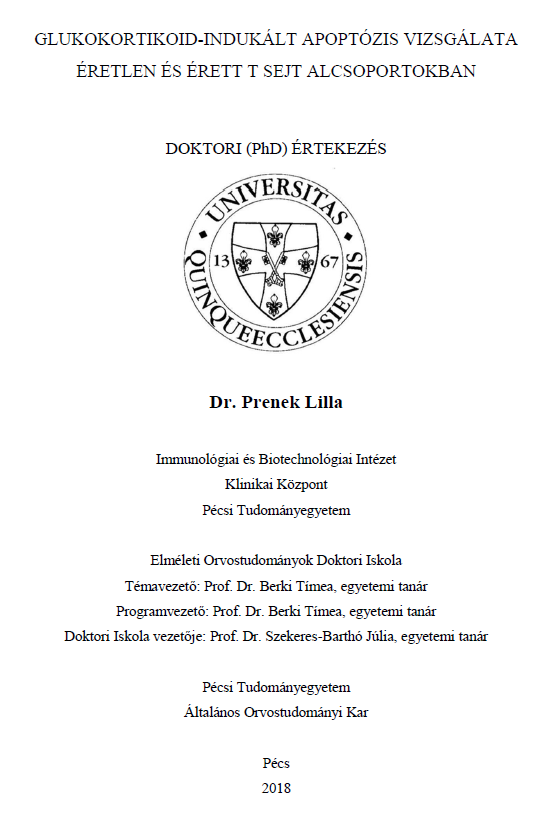Glukokortikoid-indukált apoptózis vizsgálata éretlen és érett T sejt alcsoportokban
Abstract
Glucocorticoid hormones (GC) are produced by the cells of zona fasciculata in the adrenal gland. The most important GC in human is cortisol, in murine the corticosterone. The release of the hormones is strictly regulated by the hypothalamus-pituitary-adrenal axis, and can be induced by both psychic and physical stress. GCs have multiple physiological effects; they play role in the metabolism of carbohydrates, fats, proteins, influence development, water and electrolyte balance, vasculature and the immune system. Biologically active GCs are also produced by the thymus, intestines, brain and adipose tissue.
GCs have significant effect on the immune system. They influence the apoptosis of developing thymocytes, regulate the signal transduction through the T cell receptor (TcR). They are also important in the function of mature T cells; they are key in the maintenance of a proper T cell immune response. The synthetic analogues (e.g. dexamethasone) are commonly used in the clinical practice in the treatment of autoimmune diseases, haematological malignancies and allergies, because they induce the apoptosis of leukemic cell, developing thymocytes and certain mature, activated T cells.

